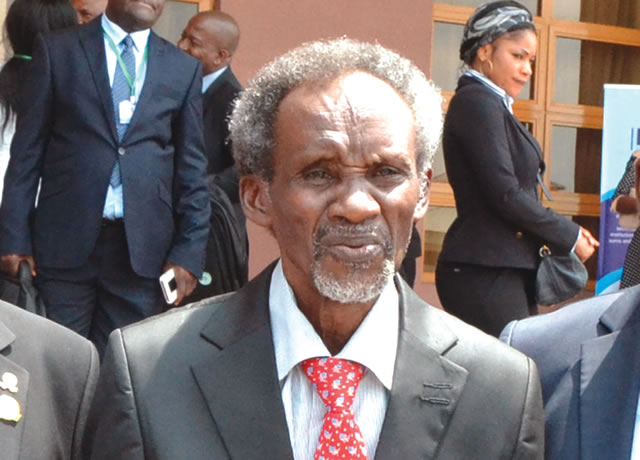 The National Judicial Council has said it is not part of its statutory responsibilities to hand over judges who are accused of corruption to anti-graft agencies for investigation and prosecution.
The National Judicial Council has said it is not part of its statutory responsibilities to hand over judges who are accused of corruption to anti-graft agencies for investigation and prosecution.
The NJC also clarified that it does not also recover proceeds of corruption and had no power to dismiss erring judges.
The NJC said this in a letter dated October 26, 2016, which it addressed to a human rights organisation, Socio-Economic Rights and Accountability Project.
The letter was the response of the Chief Justice of Nigeria, Justice Mahmud Mohammed, who is the head of the NJC, to SERAP, which had requested that the NJC should forthwith hand over the seven judges recently arrested for alleged corruption to anti-graft agencies.
SERAP, in a statement on Tuesday, said the letter with reference number, CJN/Gen/MISC/A37/Vol.XXI/8, was signed on behalf of the CJN by his Senior Special Assistant, H. S. Sa’eed.
According to SERAP, the NJC said its duty stopped at making recommendations to the executive after looking into petitions against judges.
It stressed that it could not take responsibility for the failure of the President and governors to implement the NJC’s recommendations.
The CJN said, “It is necessary to restate that the NJC is a creation of the 1999 Constitution of Nigeria (as amended) being established under Section 153 with its mandate clearly set out in Para 21, Part One of the Third Schedule to the Constitution.
“This provision clearly stipulates at Paragraph 21(b) and (d) that the council may only ‘recommend’ to the President and the governors, the removal from office of judicial officers and to exercise disciplinary control over such judicial officers, which, in effect, is the extent of its power to discipline. Hence, the council cannot, suo moto dismiss any judicial officer.
“The NJC can also neither ‘hand over’ corrupt judges to law enforcement agencies for prosecution nor recover proceeds of corruption, as you have suggested. It can merely recommend to act upon its findings, as it has always done.”
The NJC, however, restated his commitment to purging the judiciary of rot with the support of citizens by treating all petitions against judges appropriately.
It stated that to this end, it had enacted the Judicial Discipline Regulations, 2014.
The letter read partly, “However, in exercise of its constitutional mandate, the NJC has enacted the Judicial Discipline Regulations, 2014 in order to ensure that petitions are received, investigated and addressed as appropriate.
“As SERAP’s own report attests, 64 judicial officers have been disciplined within five years even preceding the institution of the new guidelines. Any failure on the part of the executive arm of government to act upon such recommendations cannot therefore be blamed upon the NJC.
“With due consideration to the contents of your letter, I am directed to acknowledge and address the concerns which SERAP have raised, which may reflect the wider opinion held by some Nigerians.
“While his Lordship, without doubt, appreciates SERAP’s concern for the incidence of corruption in the judiciary, it is indeed erroneous to conclude that the NJC has ‘felt satisfied with applying only civil sanctions and has not deemed it fit to hand over corrupt judges to law enforcement agencies for prosecution nor recover proceeds of corruption’, as insinuated in your letter under reference.”
“To be sure, every citizen of Nigeria, inclusive of judicial officers, are entitled to the protection of the law and a key provision of the Constitution is the presumption of innocence, as enshrined in Section 36(5) of the Constitution (as amended).
“I must also remind us that the seven judges, like all other persons, are entitled to a fair hearing as stipulated in Section 36 of the Constitution. As such, it would be presumptive and indeed preemptive to sanction the said judges without exhausting the proper procedure for their removal.”
The CJN expressed delight over SERAP’s concern and dedication to the course of justice, fairness and justness.
Justice Mohammed said with the support of all well-meaning Nigerians “giant strides would be made towards reaching the goal of a transparent, fair and equitable system of justice.”







